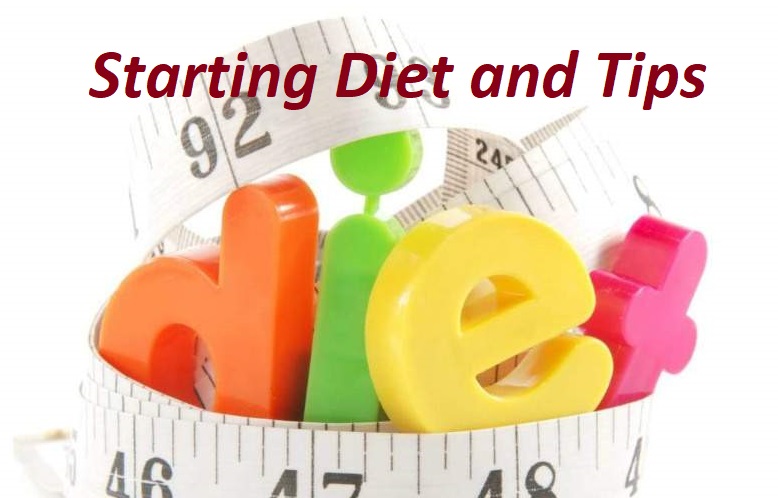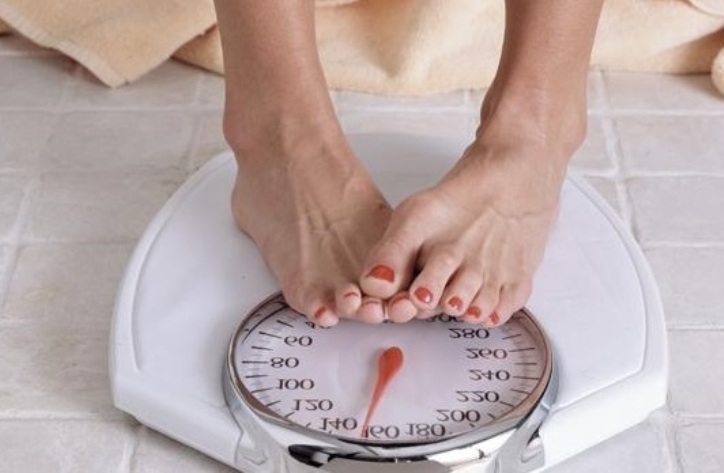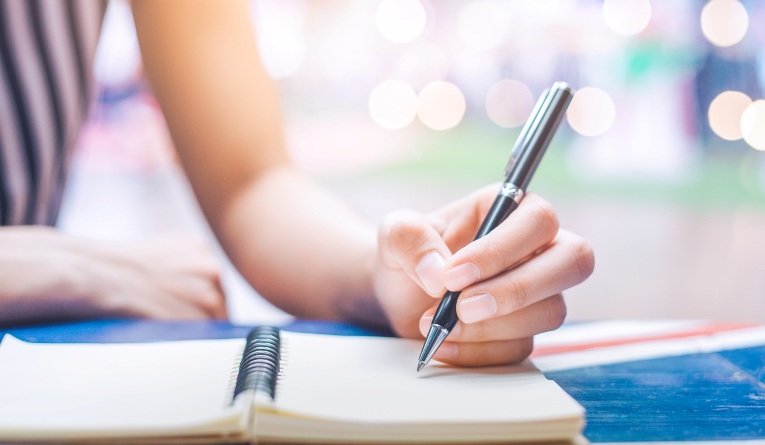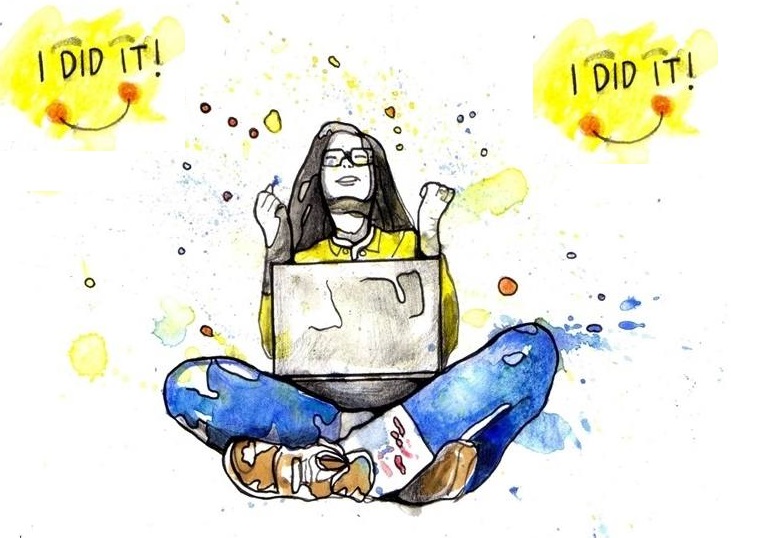Starting Diet and Tips
Why do people gain weight or lose wieght?
Calories eaten less than calories used = weight lost
Calories eaten more than calories used = weight gain

First Things First
Before going on a diet, starting an exercise regime or making other major lifestyle changes, speak to your doctor – particularly if you have a lot of weight to lose and/or currently lead a pretty sedentary life. Your doc may also be able to give you support and advice, or refer you to someone who can, such as a dietician or practice nurse.
Set a Target
ou need to set yourself a target weight to work towards. You might chose a weight you’ve been happy at in the past. Whatever weight you chose, make sure it’s a healthy one for you – anorexic stick insect is so not a good look.
Set Your Calorie Budget
To lose weight, you need to consume less calories than you use. That is the basis of any diet. So, you need to work out your calorie budget – how many calories a day you can eat and lose weight. Ignore anyone who tells you to eat a really low calorie diet.
The best thing is to find out how many calories a day you need to maintain your current weight, then eat less. You can take a look at our Basal Metabolic Rate page for calorie table.
Once you know this, how much less than this should you eat? These figures show the approximate weight loss you can expect by eating less than your maintenance calories ….
250 less = losing 0.5 lb a week
500 less = losing 1lb a week
750 less = 1.5 lb a week
1000 less = 2 lb a week
Don’t aim to lose more than 1 – 2 lb a week on average (some weeks you may lose more, some weeks less, but it’s the average loss that really matters). Slowly, steadily and healthily are the keys to losing weighsuccessfullyly and keeping it off in the long term.
Not recommended eating less than 1500 calories a day, either, particularly if you have a lot of weight to lose. Many people find that they can usually eat around 1500 calories a day without feeling hungry, if they eat a sensible and balanced diet.
Get Some Scales
You Need Scales. You really do. Actually you need two sets. One for weighing yourself. Some people prefer not to weigh themselves at all, instead checking out how well their clothes fit. We think that might work if you don’t have much to lose, but if you have a lot of weight to lose you are going to have to weigh yourself. You can get basic bathroom scales. Resist the temptation to weigh yourself every day – once a week (or even once a month) is better. If you really don’t want to have scales in the house, some people prefer to get weighed at a slimming club or at the gymn.

You need a second set for weighing your food. If poss we suggest you weigh your food in metric – it’s easier to do calculations in metric, and most manufacturers list calories per 100g (as does the Calorie, Carb & Fat Bible).
And you need a set of kitchen measuring spoons too, makes measuring small quanities of stuff way easier.
How Many Calories In …. ?
For packaged foods, look on the back of the pack. You should see calories (and fat, carbohydrates, protein etc) per 100g listed. Often they will also give the calories per ‘serving’. Watch out, cos this can be misleading. What you think of as a serving and what the food manufacturers think are often not the same thing.
You will also need a calorie book. These books lists the calories of just about every food there is. You’ll need it to look up the calories of non-packaged foods, and for those times when you throw away the packet before looking. You can often get smaller calorie books free with slimming mags – not as comprehensive, but handy for taking with you when you go out and about. You can also look up the calories of foods online at websites.
Write It Down
The only way to keep track of how many calories you eat each day is to write down everything you eat, how much you ate, and the calories in it. Get a little note book and use it to keep a record of everything you eat. Add up the calories as you go along, so you have a running total for the day and know how many you have left. Also, make a note of any exercise you did that day.

Reward Yourself
Give yourself rewards (NOT FOOD! REPEAT – NOT FOOD!) as you make progress, perhaps for every stone (or half stone) you lose. Maybe a new book, cd (if you buy them hem), hair-do, clothes, cinema trip – whatever you like (as long as it’s NOT FOOD). And promise yourself a really really good reward for when you hit your target weight.




